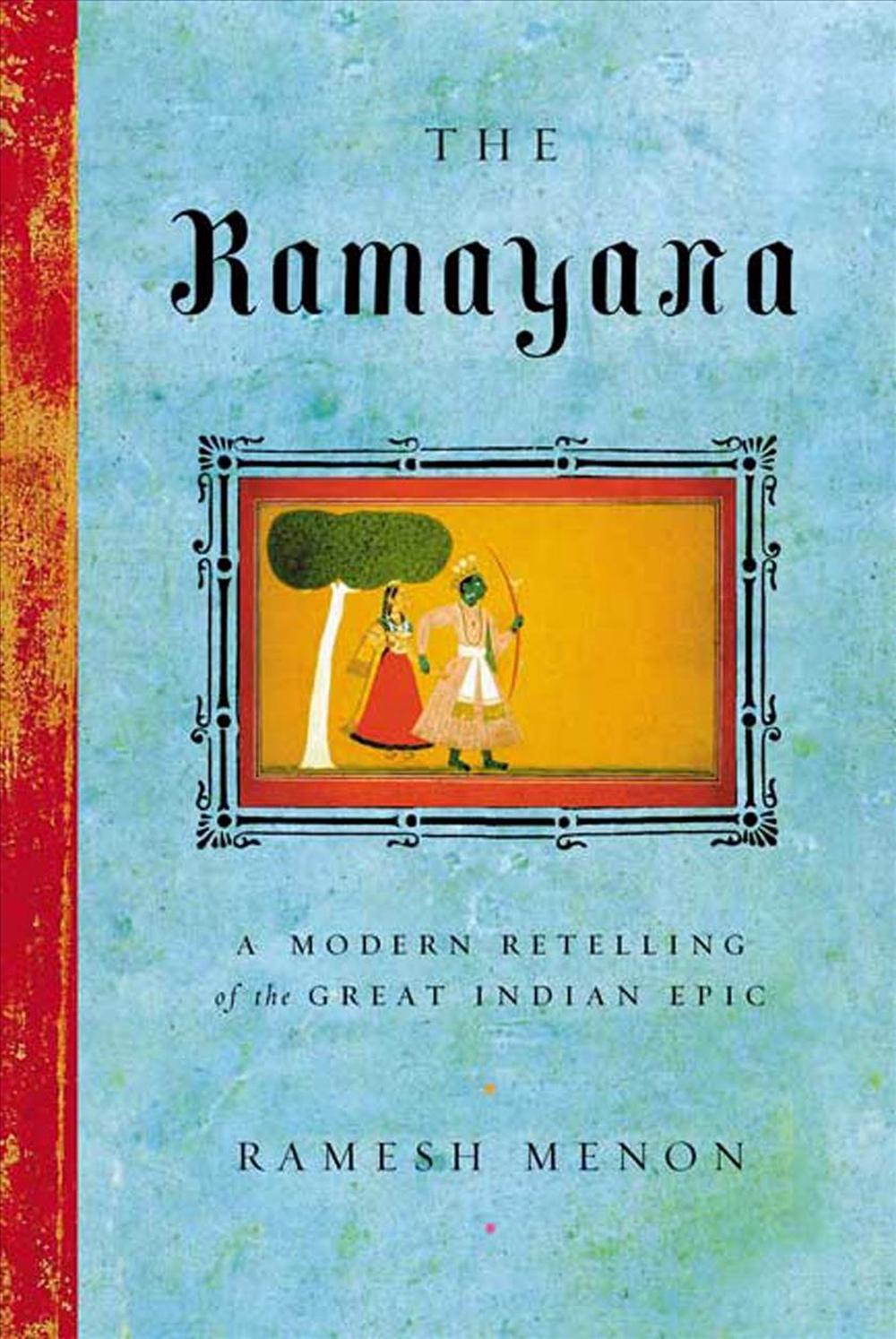
The Ramayana
a modern retelling of the great indian epic
$73.41
- Paperback
697 pages
- Release Date
26 May 2004
Summary
The great Indian epic rendered in modern prose
India’s most beloved and enduring legend, the Ramayana is widely acknowledged to be one of the world’s great literary masterpieces. Still an integral part of India’s cultural and religious expression, the Ramayana was originally composed by the Sanskrit poet Valmiki around 300 b.c. The epic of Prince Rama’s betrayal, exile, and struggle to rescue his faithful wife, Sita, from the clutches of a demon and to reclaim his throne has profoun…
Book Details
| ISBN-13: | 9780865476950 |
|---|---|
| ISBN-10: | 0865476950 |
| Author: | Ramesh Menon |
| Publisher: | North Point Press |
| Imprint: | North Point Press |
| Format: | Paperback |
| Number of Pages: | 697 |
| Release Date: | 26 May 2004 |
| Weight: | 567g |
| Dimensions: | 208mm x 137mm x 33mm |
You Can Find This Book In
What They're Saying
Critics Review
This is a beautifully re-told Ramayana. Menon finds the perfect balance of detail and narrative excitement. It’s the best single-volume version of the Ramayana.
“A beautiful new rendering of an inexhaustible theme.” –Peter Brook, Film and Theatre Director
“Reverent, lyrical, and engaging, Menon’s retelling is an impressive addition to the voluminous lore–oral, written, and performed-that collectively comprises the Rama story tradition of India and Southeast Asia. Combining the basic narrative of the ancient Sanskrit epic of Valmiki with strands from medieval devotional versions and hints of Western epic, folktale, and scripture, it brings this great story to life once more for an English-language audience.” –Philip Lutgendorf, Associate Professor of Hindi and Modern Indian Studies, University of Iowa
“This is a beautifully re-told Ramayana. Menon finds the perfect balance of detail and narrative excitement. It’s the best single-volume version of the Ramayana.” –Ariel Glucklich, Associate Professor of Hinduism, Georgetown University, author of Sacred Pain and Climbing Chamundi Hill (forthcoming).
About The Author
Ramesh Menon
Ramesh Menon is the author of Blue God: A Life of Krishna and The Hunt for K, a national bestseller in India. A former journalist, he lives in Kodaikanal, India.
Returns
This item is eligible for free returns within 30 days of delivery. See our returns policy for further details.




